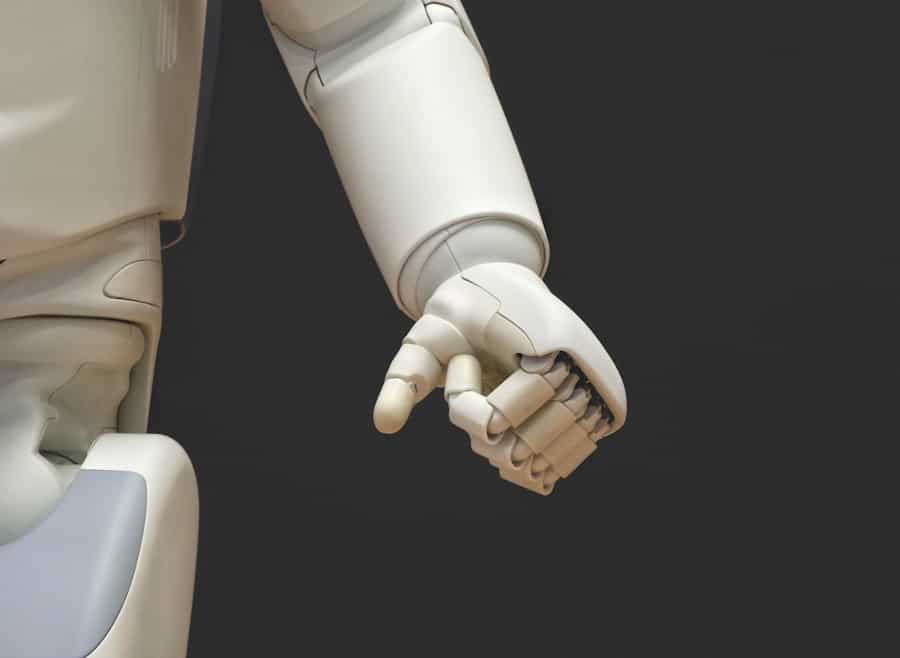Artificial Intelligence (AI) has emerged as a transformative force across various sectors, fundamentally altering how organizations operate and make decisions. In the realm of human resources and performance management, AI technologies are reshaping traditional methodologies, offering innovative solutions that enhance efficiency, accuracy, and employee engagement. Performance management systems, which are designed to assess and improve employee performance, are increasingly integrating AI capabilities to streamline processes, provide real-time feedback, and foster a culture of continuous improvement.
This integration not only optimizes the evaluation of employee contributions but also aligns individual goals with organizational objectives, creating a more cohesive work environment. The evolution of performance management systems has been marked by a shift from annual reviews to more dynamic, ongoing assessments. This shift is largely driven by the need for organizations to adapt to rapidly changing business landscapes and workforce expectations.
AI plays a pivotal role in this transformation by enabling organizations to harness vast amounts of data, analyze performance metrics in real-time, and derive actionable insights. As companies strive to cultivate a high-performance culture, the incorporation of AI into performance management systems is becoming not just beneficial but essential for maintaining competitive advantage.
Key Takeaways
- AI is revolutionizing performance management systems by automating processes and providing data-driven insights.
- AI helps redefine performance management by enabling continuous feedback, personalized development plans, and predictive analytics.
- The benefits of AI in performance management include improved accuracy, efficiency, and objectivity in evaluations.
- Challenges and risks of implementing AI in performance management include data privacy concerns, bias in algorithms, and employee resistance.
- Ethical considerations in AI-driven performance management involve transparency, fairness, and accountability in decision-making processes.
The Role of AI in Redefining Performance Management
AI technologies are redefining performance management by automating routine tasks, enhancing data analysis, and providing personalized feedback mechanisms. Traditional performance management often relies on subjective evaluations and infrequent feedback cycles, which can lead to biases and inaccuracies. In contrast, AI-driven systems utilize algorithms to analyze employee performance data continuously, allowing for a more objective assessment.
For instance, machine learning models can identify patterns in employee behavior and performance metrics, enabling managers to make informed decisions based on data rather than intuition alone. Moreover, AI facilitates the creation of personalized development plans tailored to individual employee needs. By analyzing historical performance data and identifying skill gaps, AI can recommend targeted training programs or mentorship opportunities that align with both the employee’s career aspirations and the organization’s strategic goals.
This level of customization not only enhances employee engagement but also fosters a sense of ownership over personal development. As a result, employees are more likely to feel valued and motivated, leading to improved overall performance.
Benefits of AI in Performance Management Systems

The integration of AI into performance management systems offers numerous benefits that can significantly enhance organizational effectiveness. One of the most notable advantages is the ability to provide real-time feedback. Traditional performance reviews often occur annually or biannually, which can lead to missed opportunities for timely recognition or correction of performance issues.
AI-driven systems can continuously monitor employee performance and provide instant feedback, allowing employees to adjust their behaviors and strategies promptly. This immediacy fosters a culture of continuous improvement and accountability. Additionally, AI enhances the accuracy of performance evaluations by minimizing human biases that can skew results.
For example, AI algorithms can analyze a wide range of performance indicators—such as project completion rates, customer satisfaction scores, and peer reviews—without being influenced by personal relationships or preconceived notions. This objectivity not only leads to fairer assessments but also helps identify high performers who may have been overlooked in traditional evaluation processes. Furthermore, organizations can leverage predictive analytics to forecast future performance trends based on historical data, enabling proactive talent management strategies.
Challenges and Risks of Implementing AI in Performance Management
Despite the numerous advantages of integrating AI into performance management systems, organizations must navigate several challenges and risks associated with this technology. One significant concern is the potential for data privacy violations. Performance management systems often require access to sensitive employee information, including personal data and performance metrics.
Organizations must ensure that they comply with data protection regulations such as GDPR or CCPA while implementing AI solutions. Failure to do so could result in legal repercussions and damage to the organization’s reputation. Another challenge lies in the potential for algorithmic bias.
While AI systems are designed to be objective, they can inadvertently perpetuate existing biases present in the training data. For instance, if an AI model is trained on historical performance data that reflects biased evaluations against certain demographic groups, it may continue to produce skewed results that disadvantage those groups. Organizations must be vigilant in monitoring their AI systems for bias and take corrective measures to ensure fairness in performance evaluations.
Ethical Considerations in AI-driven Performance Management
The ethical implications of using AI in performance management are profound and multifaceted. One primary concern is transparency; employees should be aware of how their performance is being evaluated and what data is being used in these assessments.
Organizations must prioritize clear communication about how AI tools function and how they impact performance evaluations. Moreover, there is a moral obligation for organizations to ensure that their AI systems promote inclusivity rather than exclusion. This involves actively working to eliminate biases in algorithms and ensuring that all employees have equal access to development opportunities identified by AI systems.
Ethical considerations also extend to the potential for over-reliance on technology; while AI can provide valuable insights, it should not replace human judgment entirely.
The Future of AI in Performance Management: Predictions and Trends

As organizations continue to embrace digital transformation, the future of AI in performance management appears promising yet complex. One emerging trend is the increasing use of natural language processing (NLP) technologies to analyze employee feedback and sentiment. By leveraging NLP, organizations can gain deeper insights into employee morale and engagement levels through analysis of communication patterns in emails, chat messages, and surveys.
This capability allows for a more nuanced understanding of workplace dynamics and can inform targeted interventions. Another trend is the rise of integrated platforms that combine various HR functions—such as recruitment, onboarding, and performance management—into a single cohesive system powered by AI. These platforms enable seamless data sharing across different HR functions, providing a holistic view of employee performance throughout their tenure with the organization.
As these technologies evolve, organizations will likely see enhanced predictive capabilities that allow them to anticipate talent needs and proactively address potential performance issues before they escalate.
Case Studies of Organizations Using AI in Performance Management
Several organizations have successfully implemented AI-driven performance management systems, showcasing the potential benefits and innovative applications of this technology. For instance, IBM has developed an AI-powered platform called Watson Talent that assists managers in evaluating employee performance through data-driven insights. By analyzing various performance metrics and employee feedback, Watson Talent provides recommendations for personalized development plans and identifies high-potential employees for leadership roles.
Another notable example is Unilever, which has integrated AI into its recruitment and performance management processes. The company uses AI algorithms to analyze candidate profiles during recruitment while also employing machine learning models to assess employee performance continuously. This approach has enabled Unilever to streamline its talent management processes significantly while ensuring that employees receive timely feedback and development opportunities tailored to their individual needs.
Recommendations for Successfully Integrating AI into Performance Management Systems
To successfully integrate AI into performance management systems, organizations should adopt a strategic approach that prioritizes transparency, inclusivity, and continuous improvement. First and foremost, it is essential to involve employees in the implementation process by soliciting their feedback on how AI tools will be used in evaluating their performance. This engagement fosters trust and ensures that employees feel valued as stakeholders in the process.
Additionally, organizations should invest in training programs for managers and HR professionals to enhance their understanding of AI technologies and their implications for performance management. By equipping leaders with the knowledge needed to interpret AI-generated insights effectively, organizations can ensure that human judgment complements technological capabilities rather than being overshadowed by them. Finally, ongoing monitoring and evaluation of AI systems are crucial for identifying biases or inaccuracies that may arise over time.
Organizations should establish clear metrics for success and regularly assess the impact of AI on employee performance evaluations. By committing to continuous improvement and ethical practices, organizations can harness the full potential of AI while fostering a fair and inclusive workplace culture.
In a recent article on Hacker Noon, the discussion around the impact of AI on traditional performance management systems is further explored. The article delves into how AI is revolutionizing the way organizations evaluate and manage employee performance, highlighting the potential benefits and challenges that come with this technological advancement. It provides valuable insights into how AI can enhance the efficiency and effectiveness of performance management processes, ultimately reshaping the future of work.
FAQs
What is AI?
AI, or artificial intelligence, refers to the simulation of human intelligence processes by machines, especially computer systems. These processes include learning, reasoning, and self-correction.
What are traditional performance management systems?
Traditional performance management systems are processes and tools used by organizations to evaluate and manage the performance of their employees. This typically includes annual performance reviews, goal setting, and performance appraisals.
How is AI redefining traditional performance management systems?
AI is redefining traditional performance management systems by automating and streamlining processes, providing real-time feedback and insights, and enabling more personalized and data-driven performance evaluations.
What are the benefits of using AI in performance management?
Some benefits of using AI in performance management include improved accuracy and objectivity in evaluations, increased efficiency and productivity, and the ability to identify patterns and trends in employee performance data.
What are some potential challenges of implementing AI in performance management?
Challenges of implementing AI in performance management may include concerns about data privacy and security, potential biases in AI algorithms, and the need for employees to adapt to new technologies and ways of working.
How can organizations prepare for the future of AI in performance management?
Organizations can prepare for the future of AI in performance management by investing in AI technologies, providing training and support for employees, and ensuring that AI systems are designed and implemented in an ethical and transparent manner.

